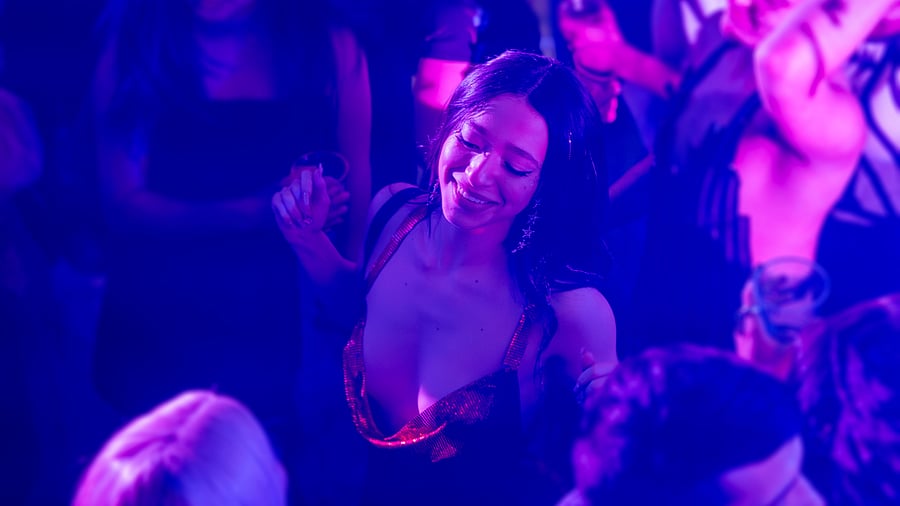
Credit: Special Arrangement
Few events across the world attract the level of prominence that the Oscars do.
Every March, the Academy welcomes a parade of powerhouses from Hollywood and beyond for a night of glory. For some audiences, it is the dazzle of high-end couture that lures them in, while others are drawn solely to the feature event: the nominations and whether the most popular names on the list will take home the statuette.
It wouldn’t be incorrect to say that the Oscars have gradually become an obligatory tradition that comforts and coddles the biggest names in the business. At the same time, the Academy has been striving to enhance inclusivity and representation of all kinds — an effort that, while commendable, is also prone to giving rise to feel-good tokenism. In a manner of speaking, Oscar norms have often catered to the superstars of the industry, whether actors, filmmakers, or other symbols of perfunctory recognition.
This year’s lineup, however, seems like a pleasant change, offering a near-comprehensive roundup of artistic achievements in 2024. Additionally, the Academy has shortlisted 10 films in the Best Film category that glaringly pivot from the prevailing norm of favouring marquee names. Last year, it was the Christopher Nolans, Greta Gerwigs, and Martin Scorseses who dominated the conversation, just as the Spielbergs, Tom Cruises, and RRRs did at the 95th Oscars in 2023. This year, at the 97th iteration, the absence of such big billers is both satisfying and encouraging.
Batting for indie spirit
As if heralding a small but important change, the independent spirit of Hollywood cinema has made its way to the mainstream at the 2025 Oscars. While one of indie cinema’s main exponents, Sean Baker, has seen his comedy-drama ‘Anora’ lead many Best Picture prediction lists, Brady Corbet’s period drama ‘The Brutalist’ has found itself under the arch lights as well. Both films, albeit starkly different from one another in tone and template, highlight themes of immigrant experiences and assimilation with aplomb.
For Baker, whose previous films like ‘Tangerine’ (2015) and 'The Florida Project’ (2017) have rooted for the underdogs of society, ‘Anora’ comes with a chance to showcase his sensibilities to a much-wider audience. Adrien Brody, on the other hand, hopes to win his second Oscar for Best Actor for his role of László Tóth in ‘The Brutalist’.
Another heartening nomination has been earned by Demi Moore, who re-burst onto the scene with Coralie Fargeat’s ‘The Substance’ and secured her first Academy Award nomination for Best Actress. ‘The Substance’ is a vivid, allegorical film categorised as body horror. It sets a new precedent by being included in the Best Picture race, given the genre’s historical lack of recognition at the Oscars.
Many critics across the world have named RaMell Ross’s debut feature ‘Nickel Boys’ the best film of 2024. ‘Nickel Boys’ is another definitive example of the Academy gradually, but surely, casting a keen eye at low-budget films that are also pushing the boundaries of the art form. The film, shot entirely in first-person POV, portrays the suffering of two Black teenagers in the 1960s at a reform school.
Reflecting the social milieu
Even the Academy’s more conventional choices this year reflect a renewed sense of purpose. Real-world politics and cultural shifts — especially following Donald Trump’s second election as the president of the USA — have shown up both prominently and discretely in this year’s Best Picture nominations.
‘Wicked’, directed by Jon M Chu and based on the musical of the same name, may appear flouncy and vibrant at first glance, but beneath its surface lies a strong anti-fascist and anti-racist ethos. In stark contrast yet echoing the same sentiment, Walter Salles’s ‘I’m Still Here’ challenges authoritarianism through the story of a defiant wife and mother searching for her husband in a dictator-led Brazil of the 1970s.
French auteur Jacques Audiard’s ‘Emilia Pérez’ arrived at the Oscars with 13 nominations, marking a near-watershed moment, with its lead, Karla Sofía Gascón, becoming the first openly transgender actor to receive a Best Actress nomination. Gascón was to blaze the trail for trans artistes across the world, especially in an environment rendered unfriendly by the Trump administration. However, the resurfacing of her allegedly racist tweets has pivoted the opportunity in a completely unsavoury direction.
James Mangold’s ‘A Complete Unknown’, although not a left-field selection for Best Picture, subtly permeates the political atmosphere with the story of a figurehead of musical protests. Meanwhile, Edward Berger’s ‘Conclave’ pits liberalism against conservatism in a staunch religious setting where dissent and change are often unwelcome.
Denis Villeneuve’s ‘Dune: Part Two’ is sure to be revered as a cinematic marvel worldwide, but on closer examination, it also makes a powerful ‘visual’ case for how fanaticism and power structures work around us. Yet, the most fascinating of all moves in this regard seems to be the nomination of Sebastian Stan (Best Supporting Actor), who plays Donald Trump himself in Ali Abbasi's 'The Apprentice'.